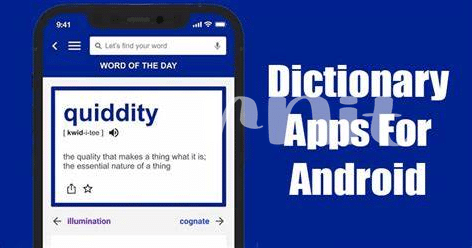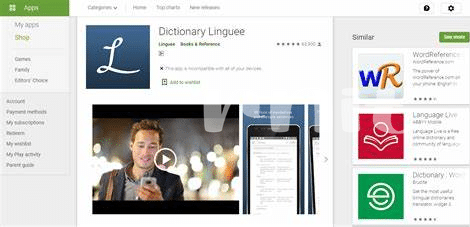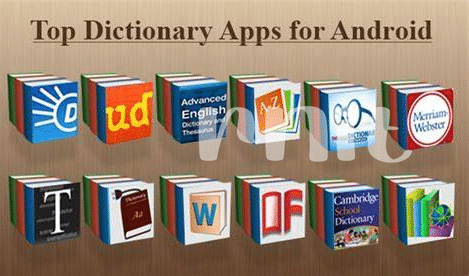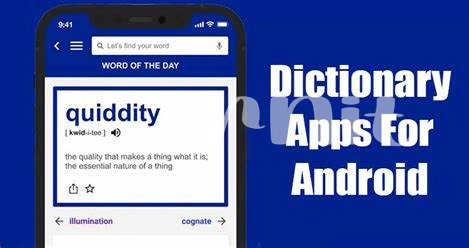- Evolution of Android Dictionary Apps in 2024 📱
- Top Features to Look for in a Dictionary App 🔍
- User-friendly Interface and Customization Options 🎨
- Language Support and Translation Capabilities 🗣️
- Offline Access and Storage Space Requirements 📶
- Future Trends and Innovations in Dictionary Apps 🚀
Table of Contents
ToggleEvolution of Android Dictionary Apps in 2024 📱
The era of Android dictionary apps has witnessed a remarkable evolution in 2024, with a multitude of advancements that have revolutionized the way users engage with language and information. These apps have not only become indispensable tools for individuals seeking to enhance their vocabulary and linguistic capabilities but have also cemented their status as versatile assets for diverse sectors such as education, professional writing, and casual language learning. The ongoing integration of cutting-edge technologies like artificial intelligence and machine learning has empowered these apps to offer remarkably accurate and contextually relevant word definitions and translations. Moreover, the seamless synchronization with cloud-based platforms has ensured a consistent user experience across multiple devices, facilitating uninterrupted access to a wealth of linguistic resources. As the demand for multilingual support continues to surge, Android dictionary apps have adeptly adapted to this need, offering an extensive array of languages and dialects, thereby promoting global communication and cultural exchange. The evolution of these apps in 2024 signifies a pivotal shift towards a more immersive, personalized, and interconnected language learning experience, setting the stage for a future where linguistic proficiency is effortlessly attainable for users worldwide.
| Top Features to Look for in a Dictionary App | User-friendly Interface and Customization Options | Language Support and Translation Capabilities | Offline Access and Storage Space Requirements | Future Trends and Innovations in Dictionary Apps |
|---|
Top Features to Look for in a Dictionary App 🔍
When selecting a dictionary app for your Android device, there are several key features to consider. A top-notch dictionary app should offer comprehensive word definitions, synonyms, antonyms, and example sentences to provide a complete understanding of the word’s usage. Additionally, an integrated voice search feature enables users to simply speak the word they want to look up, enhancing convenience and accessibility. Furthermore, the inclusion of a word-of-the-day feature can enrich users’ vocabulary by introducing new and interesting words daily. A robust search function that offers autocomplete suggestions and predictive text can significantly streamline the word lookup process, making the app more user-friendly and efficient.
In conclusion, a high-quality dictionary app in 2024 should encompass a wide array of features that cater to the diverse needs of users, ultimately delivering a seamless and enriching experience. By carefully considering these top features, users can ensure that they select an Android dictionary app that aligns with their preferences and enhances their language skills.
User-friendly Interface and Customization Options 🎨
The user-friendly interface and customization options of Android dictionary apps in 2024 have been tailored to enhance the overall user experience. This includes intuitive navigation, customizable themes, and the ability to personalize the layout to suit individual preferences. Additionally, users can expect advanced settings for font styles, sizes, and color schemes, providing a visually appealing and tailored interface for seamless interaction with the app. These features aim to cater to diverse user preferences and ensure a more personalized and enjoyable experience for all.
Language Support and Translation Capabilities 🗣️
In 2024, language support and translation capabilities in Android dictionary apps have reached new heights, allowing users to seamlessly navigate between different languages and dialects. These advanced features are designed to provide accurate and reliable translations, making it easier for users to comprehend and communicate in various languages. Whether it’s translating a word, phrase, or entire passages of text, the cutting-edge technology embedded in these apps ensures precision and efficiency. Additionally, the integration of real-time translation capabilities has transformed the way users engage with foreign languages, offering a convenient and accessible means of communication. Furthermore, the inclusion of regional language support and dialect variations demonstrates the commitment of these apps to inclusivity and cultural diversity, catering to a global user base with diverse linguistic needs.
For more information on the latest technology trends and innovations in 2024, stay up to date with the best free WiFi hotspot app for Android in 2024 via this link.
Offline Access and Storage Space Requirements 📶
Offline access is becoming an increasingly important feature in 2024 for Android dictionary apps, allowing users to access definitions and translations even without an internet connection. As users may not always have access to Wi-Fi or cellular data, this feature ensures that they can continue to utilize the app’s capabilities in various scenarios, such as during travel or in remote areas. In addition, the storage space requirements for offline access are a key consideration, as users are mindful of the amount of space that applications occupy on their devices. Accordingly, developers are focusing on optimizing the storage efficiency of their dictionary apps to minimize the impact on users’ device storage.
| Pros | Cons |
|——|——|
| Access to definitions without internet | Consumption of storage space|
| Convenient for travel and remote areas | Potential impact on device performance|
| Enhances user experience | Storage management considerations|
Future Trends and Innovations in Dictionary Apps 🚀
In 2024, the future of Android dictionary apps is poised for groundbreaking advancements and innovations. As technology continues to evolve at a rapid pace, we can anticipate a host of exciting developments in the realm of dictionary apps. From enhanced artificial intelligence capabilities that provide more accurate definitions and context-based suggestions to seamless integration with augmented reality for immersive language learning experiences, the landscape of dictionary apps is set to undergo a remarkable transformation. Additionally, the incorporation of voice recognition technology and real-time language translation features will further catapult these apps into a new era of functionality and accessibility. Moreover, with the increasing emphasis on personalization and tailored user experiences, we can expect to see an array of customizable features that cater to individual learning styles and linguistic preferences. As the demand for multilingual proficiency continues to surge, dictionary apps are likely to expand their language support and introduce innovative translation tools that streamline communication across diverse global communities. Overall, the future of Android dictionary apps is a compelling fusion of advanced technology, user-centric design, and a boundless potential for redefining how we engage with languages in the digital age.




